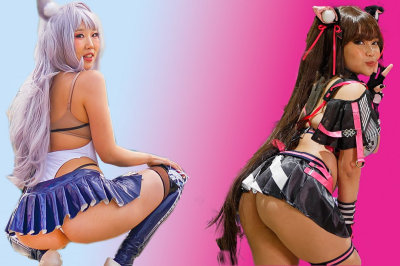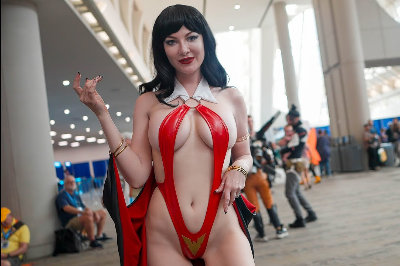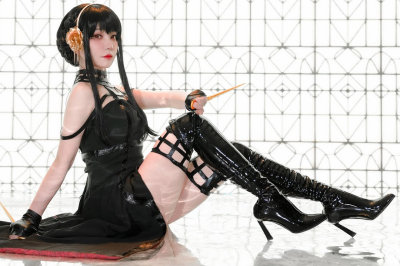TALK TO HER aka HABLE CON ELLA - Q&A with Pedro Almodovar
What, for you, is a Pedro Almodovar film?
I think perhaps the definition of an Almodovar film should be made by others rather than me. For me it's just enough that I've made it. But there is a way in which I approach subjects - or the subjects themselves that I choose to deal with, or the tone in which I deal with them in the films - that is recognisable and different from other films. I think I can be recognised. It's not so much that I make an effort to be different, but I do think that my films are different. It is kind of difficult for me to pinpoint why because that might sound presumptuous.
How long has Talk To Her been in your mind?
A couple of years. What I do is take notes, and there always comes a time when I then take those notes and sit down and write the script. What drew me to this was the idea of this highly sentimental man, Marco, who is moved to tears by all sorts of different things. And then I was intrigued by the relationships that formed between him and Benigno, and between them and these two women lying in bed in a coma. I was interested in making the character of these women be as alive and expressive as if they were standing up and talking.
As much as the praise that has been heaped upon your film there is also predictable controversy from some quarters - not least the fantasy sequence in the form of a silent film that Benigno describes. Did you anticipate this?
I actually don't foresee any audience reaction. But I was aware that it was one of the most important parts of the film, and one of the parts of the film that would be the most talked about. I felt it was important because it entailed so many things, but my initial reaction was that I was a little afraid because it was quite risky to put a seven-minute silent film in the middle of the action. That's very daring on my part.
So are you happy with what it achieved?
At the end of the day I'm very glad I did it, and I'm very satisfied in the sense that this is almost like a caprice, to make a short silent movie in black and white, I enjoyed it very much. And I thought it might be more difficult than it really was, there is a lot of risk in there, but we fortunately overcame all of this quite easily. My main preoccupation was the acting style, because it is expressionistic and a little exaggerated. Everything has to be bigger, the decoration, the gestures, you can easily go beyond exaggeration into the grotesque. There is a very subtle line between being exactly how they used to be in those films and being completely ridiculous. Fortunately the two actors in that sequence understood very well what they had to do.
What made you cast Geraldine Chaplin in the film?
I called her because I like her very much, and also she has the physical attributes of the character. She has had training in ballet, I remember once when I was a child watching her in Paris, wearing a big tutu even before she began making movies. So she was perfect for that. And of course you do believe that she was once a dancer. At the same time she was a discovery, she's very funny, a great comedienne. But I'm not surprised because I remember her in Robert Altman's Nashville. She's very spirited and very funny. I found that she was perfect for me and reminded me of a quality that Chus Lampreave - one of my family of actresses - has, which is a kind of innocence and a natural extravagance. Geraldine and Chus and also Javier Camara have this quality, they can make the most strange or surreal things seem incredibly natural.
There seems more stylistic sleight of hand in the bullfighting sequence that consigns Lydia to her coma, doesn't there?
I did use some digital effects for the bullfight sequence. But Rosariowas learning how to do it, in fact she went to the bullfighting school in Madrid and received lessons there from real matadors. She does it pretty well, because even though the bull wasn't next to her in those scenes she needed to do everything else herself. She needed to do it properly like a real bullfighter, so it was necessary for her to learn. But she was never in front of a bull. It was very complicated and it took a lot of time.
Is the idea of a female bullfighter very far fetched?
Female bullfighters exist in Spain. Bullfighting is a very macho world, and these women do face problems. There was one very famous one, retired now, who had a great reputation because she was so good but a lot of bullfighters didn't want to be in the same ring with her because he was a woman. I can't claim to be a bullfighting aficionado I used to go once or twice every year, and I was always very impressed. But I can't watch it quietly like other people. It's really a great spectacle, everything is there. Whenever I've gone to a bullfight I tend to go with someone who is an expert so that he can explain to me the meaning of what is taking place, because what happens between the bullfighter and the bull is very close. In that case I identify myself very much with the bullfighter.
A filmmaker at the mercy of critics and audiences might seem more likely to identify with the bull, surely?
You do sometimes get the impression that you are in the middle of an arena and everybody is watching you. Sometimes they are applauding, but there is a mystery and a secret between you and the story you are telling. This is the nature of the work, I don't complain, this is how it is. In those important moments of shooting you are completely alone. That is how it is. So yes, I do sometimes identify with the bull too.
Does your approach change much these days, in the knowledge that your films will be seen by audiences all around the world?
Making something for international audiences to see doesn't actually doesn't apply a special pressure on me. I always trust, perhaps naively, that international audiences will understand me as much as Spanish audiences do, even if they don't share my language. I think of myself watching the films of Kurosawa and felt completely that I understood and identified with them. I think if you tell the story with your heart, sincerely and honestly then everyone should be able to understand them. And even if you do find something that somehow isn't so easily understandable, well at least for me I'm usually fascinated by the things I don't understand. Like 'No theatre' or other Japanese rituals. In this case bullfighting is also a mystery, it's something that's very difficult to explain outside of Spain.
Explain just how much an actress like Leonor Watling trusts you to be portrayed naked, and in a coma, during your film.
Of course I need a certain level of trust from all my actors, and Leonor absolutely trusted me. This is not a joke, but she is acting too. To be so immobile, so quiet, and so expressive at the same time is very difficult. She only has her body to do that with, and it's the body that 'talks'. Of course I have to be respectful with that body, and I absolutely was. I tried to invent more beautiful shots. It's very difficult to photograph a body in a bed, there are only two shots you can do, and they don't make you look nice or beautiful. I tried to be in every inch of the space, in the room, trying to capture it. Obviously you don't see at the beginning, you only see someone on the bed. But I tried to get the best image of her in that room.
How does an actress prepare for a role like that?
I know it's very hard to do, especially for an actress who wants to show everyone what a wonderful actress she is. I just wanted her not to do anything. It was a challenge for her, but I hope she will have her reward after, in the next movie. She took yoga classes for four months, so did Rosario, to learn to be completely still. These roles didn't mean that they would go to bed, lay down and close the door.There were a thousand people coming around on set, causing distractions. It could have been impossible. I wanted them to have the impression that they were in an inner place, mysterious and far from everything. This is another expression, something you can get with deep relaxation from yoga. They went every day for months. Leonor did it very well, even her teacher was surprised at the control she gained within that time. It was not easy, not at all.
Given your impressive track record at writing great roles for women one would think you must be approached by actresses keen to work with you all the time. Are you?
Actresses in Hollywood do try to work with me, it's true. It's a terrible shame that Hollywood doesn't take advantage of this treasure that they have, they don't take advantage of the enormous talent of all these actresses who just happen to have turned 35 and seem not to be able to work any more. I would love to work with many of them but we would have to find the right vehicle. Up until now I haven't found it, I've always made my films in Spanish and I do admit that there is a certain fear in taking the steps to shoot something in English. Perhaps I could do it in England, but the way films are produced in Hollywood is not comparable to the way we understand it in Spain, or Europe in general. There it seems that a director is condemned to having to accept so many different criteria from executives, studio heads, actors and everyone that I'm amazed anyone is able to finish a film.
Would you ever consider working outside of Spain?
I suppose that I could find a book or a story that needs another language than Spanish and then I would be ready to do it. But I need to feel obsessed by or passionate about the story.
Question and Answer Text Copyright Pathé Distribution



